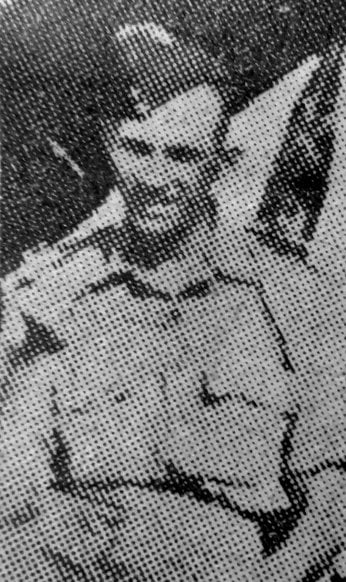South Yorkshire Times – Saturday 26 December 1942
Battle of Egypt
Conisbrough Soldier’s First-Hand Account.

A letter which vividly pictures the preparations for and start of the Eighth Army’s great offensive, which ousted Rommel from Egypt. has been received by Mr. N F. Knight, now a member of the staff of the Conisbrough Modern School, from Lce.- Sgt. H. Knight, a former pupil of the Station Road School. now serving in the Middle East.
Although they have the same surname. Mr. Knight and Sgt. Knight are not related.
Sgt. Knight, referring to a previous letter, wrote: “Shortly after I wrote to you from camp we moved up to the forward area, and Just got there when Rommel attacked in August. Rommel didn’t last so very long before he was going back and proved that his attack was a complete failure.
“General Montgomery had just taken over command of the Eighth Army, and had something better in mind than following Rommel up. He ordered a part of the Eighth Army to withdraw to a training area and thus train for the smashing up of Rommel’s Army in Egypt My unit was included in this extensive training.
“The time came when the training programme had been completed and when everyone of the Eighth Army was ringing and whistling with joy to think the big push was shortly to begin. Units of all kinds began to move forward: columns and columns of tanks, guns, and vehicles of all kinds moving forward to prepare for the big attack. Our Colonel had everyone on parade and told us the Eighth Army is going to attack on Friday night, Oct. 23rd. at 11 o’clock and this time is going to smash Rommel’s army in the whole of North Africa. He pointed out on the map how the battle was going to begin and the part our unit had to play.
“The night of Oct. 23rd came. We were on our way to the forward area as we had remained back for another purpose. Eleven o’clock came, and the distant sky was lit up by the 25-pounders shelling the enemy. The following morning we had arrived in the battle area our 25-pounders were shelling all the time and our bombers were going over every half-hour. We watched our bombers dropping their bombs on the enemy, and a few of the enemy’s A.A. shells bursting in between our planes.
The day passed quickly, with our 5-pounders in action all the time and our own A.A. guns having a shot at the few planes which Jerry sent over. Dusk came and then over came Jerry’s Stukas, but you ought to have seen the A.A. barrage go up—a wonderful sight.
“Everything was quiet for a while so we decided to get in the trench and have a sleep. We just got our heads down when the 25-pounders near us opened fire. We were awake all night. The morning came and we moved up. Every day we advanced and stood so long fighting it out giving Jerry everything we had got. One time we moved into a spot where some of Jerry’s 88 m.m. shells were landing, but luckily none did any damage to us.
“After days of hard fighting word came for the ‘General Advance.’ As our convoy went along we got held up, making a perfect target for bombing and Jerry did come with his Stukas. Down they came screaming and their bombs screaming, too, but our A.A. guns were there blazing away and putting Jerry off his target. The bombs dropped away from the vehicles but the shrapnel did a bit of damage and insured a few men, one of them only three yards from me.
“The next thing we advanced to a station where hundreds of prisoners were awaiting to be ‘collected.’ On our way there we saw all sorts of tanks and vehicles blazing, all either German or Italian. Some vehicles were in good order and were used to transport the prisoners. The advance continued and we reached Mersa Matruh, where all the buildings were shattered, but there was a lovely harbour to bathe in. I had a bathe in the afternoon, nice and warm, made me feel quite fresh.
“Jerry left all sorts of things behind, including a wireless set in good order, which is now company for us. We enjoy the programmes from London. I visited the cemetery of our boys at Tobruk and the graves are decorated with all sorts of fancy tilings.
Sgt. Knight closes with the hope that before long they will have cleared the enemy right out of North Africa.
